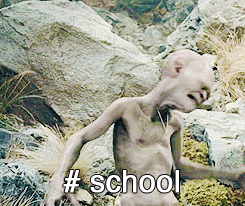
Collord – Necessity of Literacy
Hi everyone! My name is Hailey Collord. I’m from Mount Shasta (which is up near the Oregon border), and my graduating class had less than 70 people in it, so coming to Chico in 2012 was a bit of a shock. I’m an English Studies major, and I’m trying to get a minor in Russian Language studies (though many in the Department of International Languages, Literatures, and Cultures are dragging their feet to get this minor up and running). I am graduating in the spring, and am getting married in June! Currently, I’m studying to take the LSAT in the beginning of October, and that’s been a bit stressful. Additionally, when I say “I’m studying” what I really mean is “I’m going to start studying soon.”
I was very interested in what we started talking about on Friday in relation to personal literacy and that correlation to family literacy practices. I read my first chapter book before my older sister did when I was in kindergarten. Interestingly, I would read books first, and then she would read them if I liked them. My sister, two years older than me, would actually use me as her guide for literacy. This struck me as odd in class when we were talking about the younger sibling typically shadowing the older sibling in regards to reading and writing. Of course, it may just be that she or I was an outlier in terms of how family literacy tends to spread. I would be very interested in examining the role of the sibling, younger or older, in family literacy. My parents constantly read to us when we were young, and they frequently engaged us in creative writing activities which is something that spurred me to develop my love for reading and writing. My sister, however, doesn’t seem to harbor the same passion, or even interest, for these activities that I do. This is another aspect of literacy in which I’m interested. Just how influential is a family on its members’ literacy practices? Does the influence only reach as far as the individual’s personal interest? Can family influence sway an individual’s preference toward “higher” literacy or “lower” literacy than that individual would’ve originally preferred?
Regarding my own literacy practices, I engage heavily in reading from novels of all genres, poetry, news, textbooks, letters, email, text messages, comments on articles and videos, subtitles on foreign films, blog posts on our class site, etc. I write essays, emails, short stories, poems, text messages, blog posts on our class site (or I will be), comments on articles, letters, etc. Having a working literacy, I’ve found, is something indispensable to me. I am nearly constantly in need of my abilities to read and to write. This is not to say, however, that every person is in need of the same level of literacy as everyone else. An excellent example in class arose when we talked about the level or different genre, so to speak, of literacy that would be practical for someone managing a farm or a ranch. That individual would likely have a greater interest in growing crops, managing livestock, and running equipment whereas they are probably less likely to hold a great interest in learning the merits and demerits of the Oxford comma.
What each person with a working literacy, that is to say at least a basic understanding of reading and writing, has in common is a knowledge of standard words and definitions that enables them to read and write. While I hesitate to sound traditionalist, I do have a mild predilection toward people learning to read, write, and speak in the same standard of language in which the rest of their countrypeople do at least at a basic level. However, this should not account for art or cultural traditions. Szwed brings an interesting example of this into his piece when he talks about “black poets…using unorthodox spellings and typography [that] have been dismissed as simply semiliterate…” (427). Art, in its purest sense, is an unadulterated expression of something as the artist feels it or chooses to express it. This should not be held to a standard form as that would undercut the purpose of art. Additionally, many cultures have various forms of literacy that help preserve their histories and traditions, and this too, should be allowed to flourish, though arguably not at the expense of those cultures’ abilities to communicate easily with the others who may be around them.
Literacy is an extremely hard thing to classify, and it’s even more difficult to standardize. I am very interested in seeing where this semester takes us into understanding literacy further. I hope to have my opinions challenged, and that I can grow and develop new ways of understanding literacy and how it affects us.
A scene from the movie Idiocracy (2006): https://www.youtube.com/watch?v=LXzJR7K0wK0

 Website:
Website:
One Reply to “Collord – Necessity of Literacy”
Hello Hailey! It was really interesting reading your blog. I also thought it was interesting to read that you are more of a reader than your sister. I always push my younger sister to read more than just tumblr blogs. We all have our own idea or way of reading. I agree that everyone has different idea what they should read. My Dad values reading newspapers and mechanical articles because it benefits him more. I can’t wait to read more of your blogs this semester!